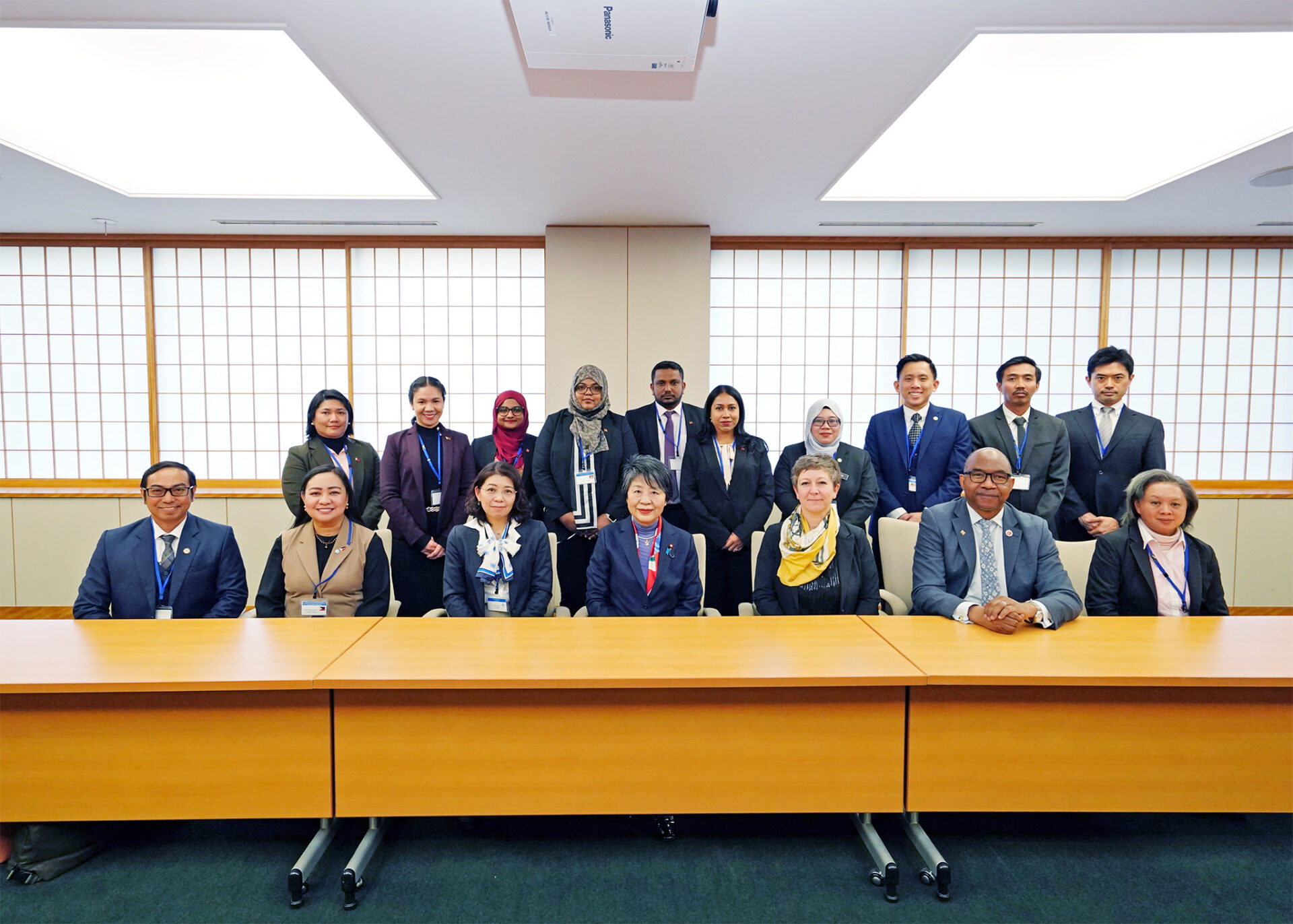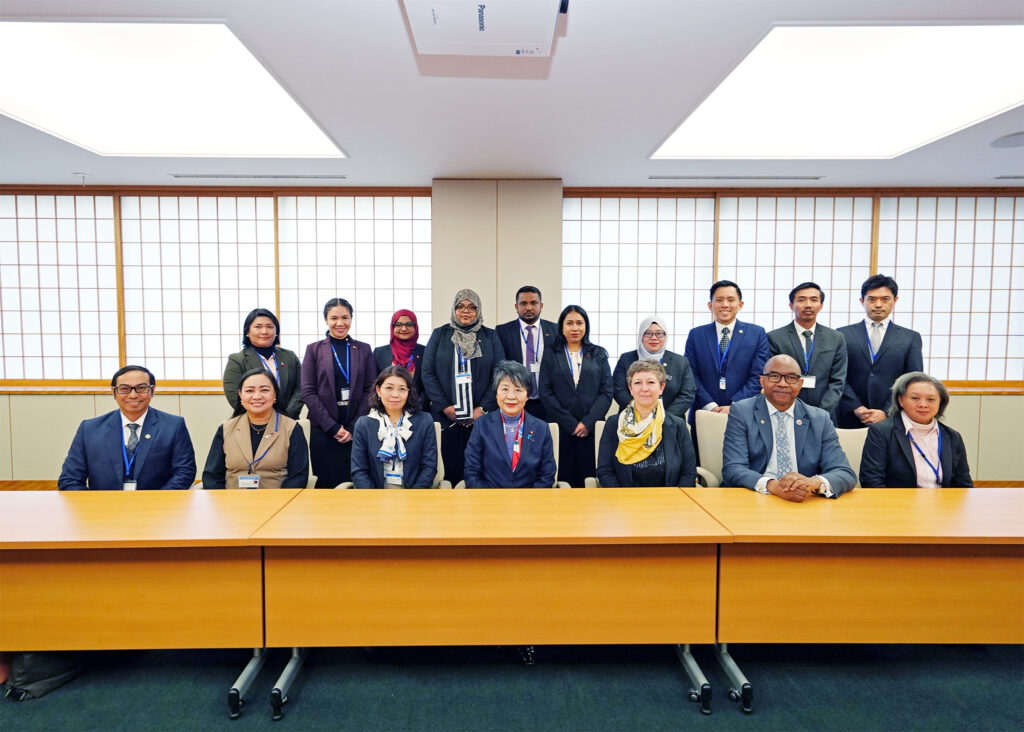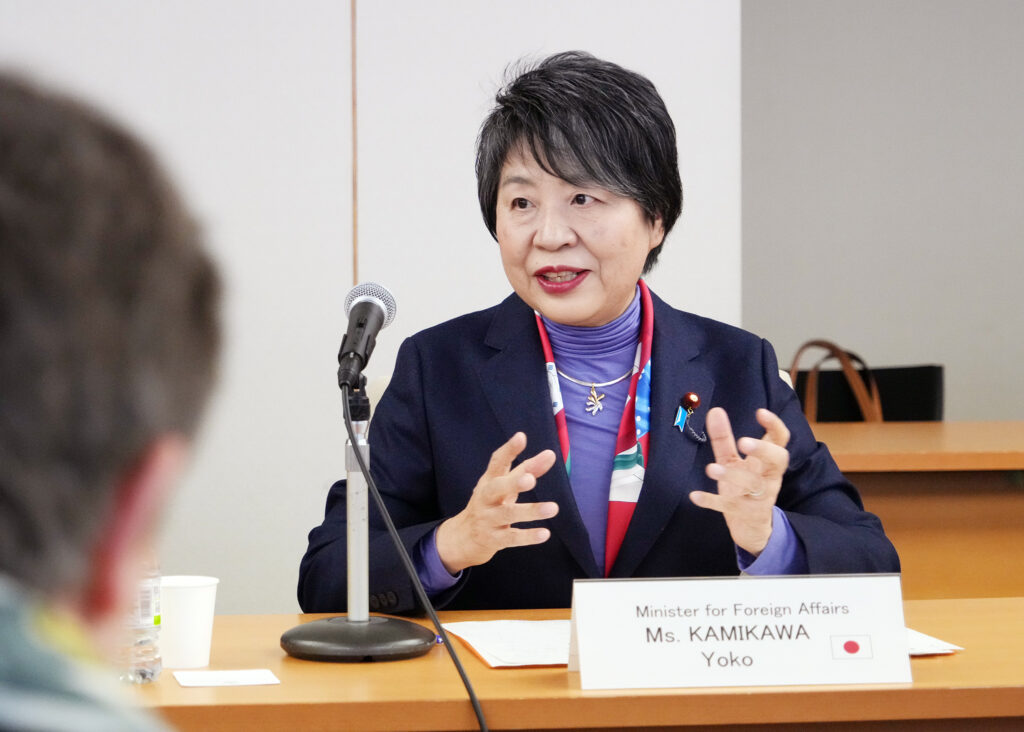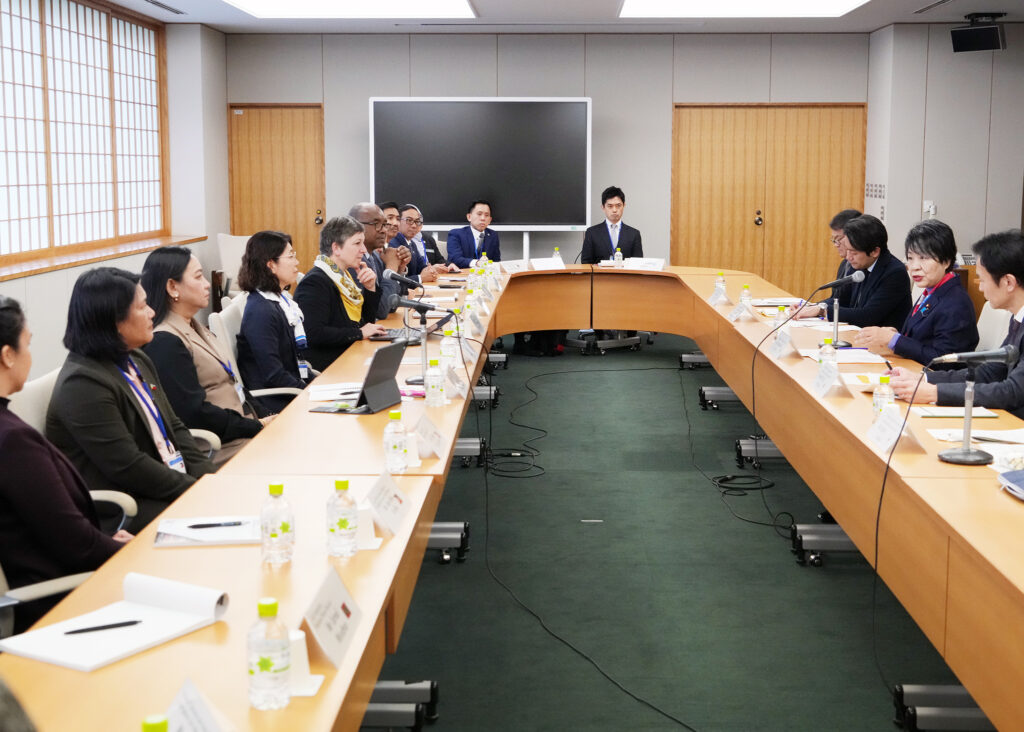
Celebrating the IIJ’s 10th Celebration this year, the IIJ’s Director of Academic Unit Hon. Judge Marie Compère, and Mr. Cheibou Samna Soumana Resident Fellow and former Chief Prosecutor at the Prosecution Office of Niamey were extremely honoured to holding a one-day symposium for Southeast Asian Alumni on “Building cooperation and coordination to promote the Rule of Law” with the support and under the auspices of the Japanese Ministry of Foreign Affairs (MOFA).

Ministry of Foreign Affairs, Tokyo, Japan (photo credit: MOFA Japan)
This exceptional symposium was organized by the IIJ with the participation of United Nations Asia and Far East Institute for the Prevention of Crime and the Treatment of Offenders (UNAFEI), our long-standing IIJ partner.
Held at the premises of Japanese Ministry of Foreign Affairs (MOFA) and at the Mita Conference Hall, Tokyo, on 26 February 2024, this symposium offered a platform for IIJ Alumni to build on firsthand experiences and reflections on how to continue addressing the intricate landscape of terrorism, following the G7 Hiroshima Summit.

These priorities were jointly underscored at the opening ceremony conducted by Mr. WARISAWA Koichi, Director of the International Safety and Security Cooperation Division, Ministry of Foreign Affairs of Japan, Ambassador MATSUO Hirotaka, Deputy Director-General, Foreign Policy Bureau of the Ministry of Foreign Affairs and Ms. SHIBATA Noriko, Assistant Vice-Minister of Justice, Minister’s Secretariat of the Ministry of Justice as well as by Hon. Judge Marie Compère, IIJ Academic Unit Director.

The IIJ’s delegation was honoured and privileged to be hosted by Her Excellency Ms. KAMIKAWA Yoko, Minister of Foreign Affairs and former Minister of Justice in Japan. Her Excellency emphasized the IIJ’s role in “spreading the rule of law in the Asian region” together with UNAFEI.by Her Excellency Ms KAMIKAWA Yoko, Minister of Foreign Affairs, former Ministry of Justice in Japan. Her Excellency emphasized the IIJ’s role in “spreading the rule of law in the Asian region” together with UNAFEI.

The IIJ was delighted to reunite IIJ Alumni, members of the first South and Southeast Asia Counter-Terrorism Academic Curriculum (CTAC) promotion held in 2022, from Malaysia, Maldives, the Philippines, and Thailand, alongside Ms. IRIE Junko, Deputy Director of UNAFEI, Prof. YAMANA Rompei, two esteemed prosecutors from Japan, and UNAFEI professors. It's worth noting that some of our IIJ alumni are also UNAFEI alumni.
Both Ms. IRIE and Ms. Compère, as directors and practitioners, stressed the importance of capacity-building activities in consolidating effective national and international judicial cooperation based on Human Rights and the Role of Law in complex cases of terrorism and transnational threats in the Indo-Pacific region and beyond. “Our day-to-day responsibilities have an impact on the lives of litigants, and therefore require us to maintain and develop our knowledge and skills and to work collectively while respecting the sovereignty of our States and our respective attributions, to identify, prevent if possible, and respond fairly to complex and often international criminal acts,” said Hon. Judge Compère. “UNAFEI and the IIJ have a lot in common, but one feature I would like to highlight is that both UNAFEI and the IIJ fortunately have very committed alumni,” added Ms. IRIE Junko, Deputy Director of UNAFEI and Japanese Prosecutor.
Indeed, the IIJ’s impact was highlighted by Southeast CTAC alumni on complex ongoing cases, particularly in crucial steps during the investigation phase such as improved witness protection, collection of evidence, including digital evidence, dynamic international judicial and police cooperation, and leverage of national coordination.
The symposium stood as a crucial milestone in confronting the complex landscape of terrorism in Southeast Asia and concluded with some insightful recommendations from our IIJ alumni, including duplicating these regional alumni meetings "to share improvements and monitor the current situation."
See the MOFA press release : Courtesy call on Minister Kamikawa by participants of the Rule of Law Workshop in South Asia and Southeast Asia | Ministry of Foreign Affairs of Japan (mofa.go.jp)
UNAFEI/IIJ Cooperation on Juvenile Justice
In addition to this tremendous reunion with South and Southeast IIJ Alumni, the IIJ was delighted to be jointly invited by UNAFEI and the Japan International Cooperation Agency (JICA) to intervene during the Francophone African Criminal Justice Seminar on “Problems with the investigation, prosecution and trial procedures of crimes (including organized crimes and cross-border crimes such as human trafficking and terrorism) in which minors involved”.
This in person course with UNAFEI, our long-standing partner with whom an MoU was signed last year, is yet another demonstration of the joint commitment of these two entities, following on from the IIJ Academic Unit online participation last year on "International cooperation in drug trafficking investigations and trials for police officers, prosecutors and judges from Burkina Faso, Chad, Côte d'Ivoire, Mali, Mauritania, Niger and Senegal" during the UNAFEI Course.
This time, twenty-two criminal justice practitioners (investigators, prosecutors and examining judges) from six French-speaking countries of Burkina Faso, Côte d'Ivoire, Chad, Mali, Mauritania, Senegal worked together with UNAFEI and our IIJ practitioners on a range of topics including Forensic interview techniques presented by expert and Professor Mrs. TANAKA Akiko of Setsunam University, whom presentation was truly inspiring.
The Academic Unit designed and delivered a comprehensive module on "Investigations, prosecutions, judgments, alternatives to detention, reintegration: overview of the judicial treatment of cases involving minors in the Sahelo-Saharan region and Côte d'Ivoire".
The challenges linked to the management of cases of terrorism and organized crime involving minors were highlighted, particularily in terms of the internalization of international legal instruments relating to this complex subject, the legal and institutional gaps identified, and the effectiveness of the implementation of these principles. Finally, the module offered recommendations from the IIJ's previous work, including that of the IIJ Programmatic Unit and CT PHARE and included bibliographical references, such as the IIJ's Guidelines for Practitioners on Juvenile Justice. This long-term course was once again a fantastic opportunity to work and exchange in depth with practitioners who are deeply involved in supporting children's rights on the crucial subject of children in the fight against terrorism and organized crime.
The IIJ expresses its deep gratitude to such strong partners and looks forward to further cooperation with Japanese authorities.

